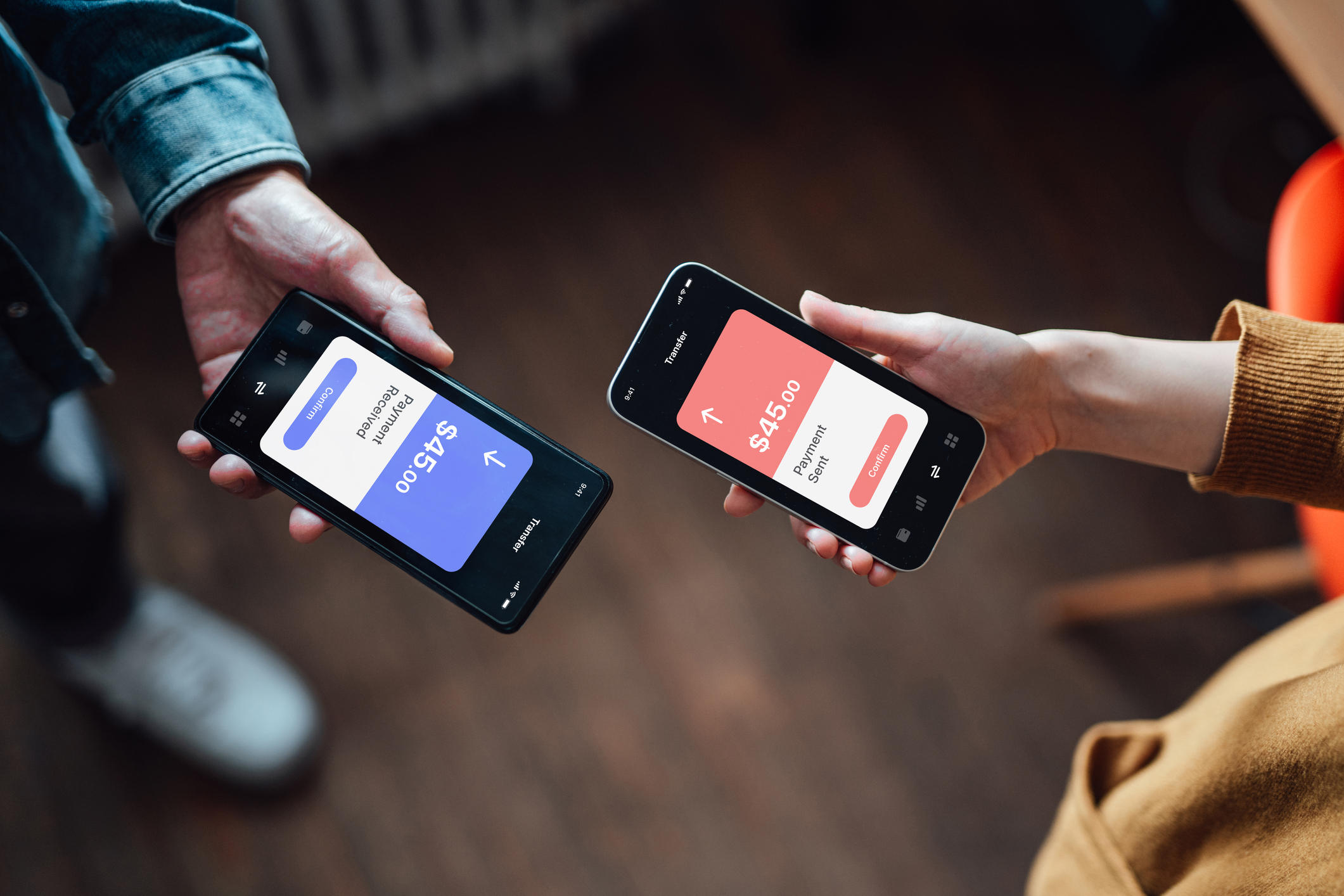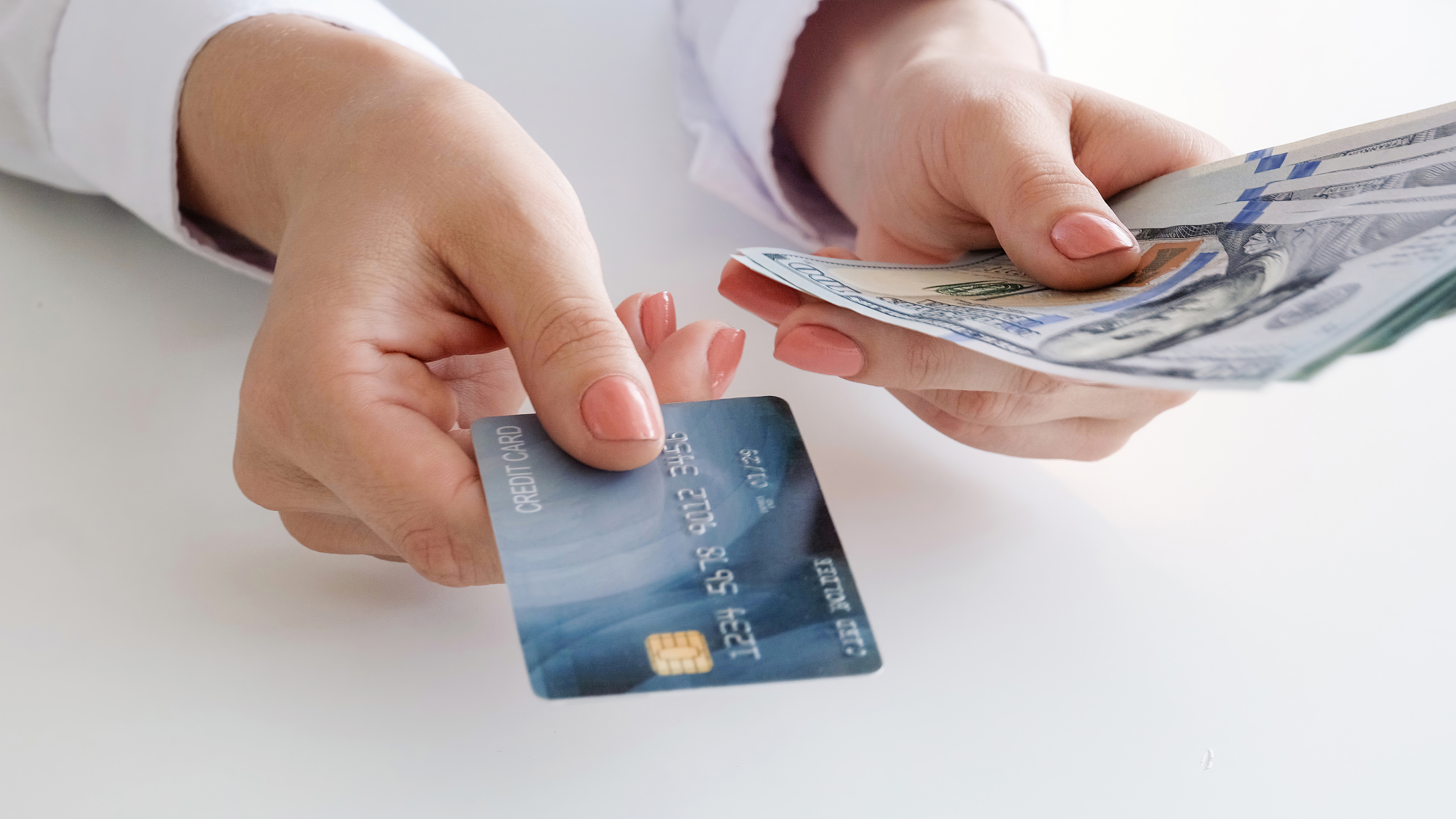Manhattan DA Urges Payment Apps To Improve Security Features
Incidents of payment app fraud and theft are on the rise and extend beyond NYC, Manhattan DA says.


Profit and prosper with the best of Kiplinger's advice on investing, taxes, retirement, personal finance and much more. Delivered daily. Enter your email in the box and click Sign Me Up.
You are now subscribed
Your newsletter sign-up was successful
Want to add more newsletters?

Delivered daily
Kiplinger Today
Profit and prosper with the best of Kiplinger's advice on investing, taxes, retirement, personal finance and much more delivered daily. Smart money moves start here.

Sent five days a week
Kiplinger A Step Ahead
Get practical help to make better financial decisions in your everyday life, from spending to savings on top deals.

Delivered daily
Kiplinger Closing Bell
Get today's biggest financial and investing headlines delivered to your inbox every day the U.S. stock market is open.

Sent twice a week
Kiplinger Adviser Intel
Financial pros across the country share best practices and fresh tactics to preserve and grow your wealth.

Delivered weekly
Kiplinger Tax Tips
Trim your federal and state tax bills with practical tax-planning and tax-cutting strategies.

Sent twice a week
Kiplinger Retirement Tips
Your twice-a-week guide to planning and enjoying a financially secure and richly rewarding retirement

Sent bimonthly.
Kiplinger Adviser Angle
Insights for advisers, wealth managers and other financial professionals.

Sent twice a week
Kiplinger Investing Weekly
Your twice-a-week roundup of promising stocks, funds, companies and industries you should consider, ones you should avoid, and why.

Sent weekly for six weeks
Kiplinger Invest for Retirement
Your step-by-step six-part series on how to invest for retirement, from devising a successful strategy to exactly which investments to choose.
Following a growing number of incidents of fraud and theft in New York City involving payment apps Venmo, Zelle and Cash App, Manhattan District Attorney (DA) Alvin Bragg is calling on executives at these apps to increase customer security.
Bragg sent letters to the heads of those apps on January 22 and requested meetings with each of them, saying that the problem extends beyond NYC to the rest of the country.
“These crimes involve an unauthorized user gaining access to unlocked devices and then draining bank accounts of significant sums of money, making purchases with mobile financial applications, and using financial information from the applications to open new accounts,” he said in the letter.
From just $107.88 $24.99 for Kiplinger Personal Finance
Become a smarter, better informed investor. Subscribe from just $107.88 $24.99, plus get up to 4 Special Issues

Sign up for Kiplinger’s Free Newsletters
Profit and prosper with the best of expert advice on investing, taxes, retirement, personal finance and more - straight to your e-mail.
Profit and prosper with the best of expert advice - straight to your e-mail.
"The ease with which offenders can collect five- and even six-figure windfalls in a matter of minutes is incentivizing a large number of individuals to commit these crimes, which are creating serious financial, and in some cases physical, harm to our residents," he said.
Apple tests new safeguards
Citing Apple’s new beta Stolen Device Technology, which when activated requires someone to use FaceID in addition to their password to access sensitive information such as stored passwords, Bragg said that more safeguards like these are needed.
How to choose the right payment app can be daunting, however, especially when considering security.
During the last five years, the peer-to-peer payment services market has grown "exponentially" to almost $1 trillion in payments across the most-used apps, Bragg said. "As these payment networks have become ubiquitous, frauds and scams have proliferated, with fraud claims tripling between 2020 and 2022, costing consumers hundreds of millions of dollars each year."
He offered a number of suggestions for the companies to implement to increase security, such as:
- Adding a second and separate password for accessing the app on a smartphone as a default security option.
- Impose default lower limits on the monetary amount of total daily transfers.
- Require wait time and secondary verification of up to a day for large monetary transactions.
- Better monitor accounts for unusual transfer activities and ask for confirmation when suspicious transactions occur.
Federal oversight on the way?
Payment apps may face federal scrutiny under a new rule proposed from the Consumer Financial Protection Bureau (CFPB). Last November, the agency proposed that apps including PayPal, Apple Pay and Google Pay be held to the same security standards as their larger banking counterparts.
The rule, which would apply to companies handline more than five million transactions annually, would subject the apps to CFPB supervision in two main areas: Compliance with federal consumer protection laws, and Competition with banks and credit unions.
The move followed a CFPB report last June finding that storing money in popular payment apps carries hidden risks as they may lack the federal insurance coverage that protects bigger banks and credit unions during a crisis.
As Kiplinger previously reported, there are a number of ways to more safely use payment apps and protect yourself from potential hacks or scammers. These include:
- Protecting your account with a pin or multi-factor authentication.
- Setting up notification alerts for transactions on your account.
- Confirming the identity of anyone you send payment to before doing so.
Also, if you have a complaint or concern about a digital wallet or payment app, you can submit your comments on the CFPB site.
RELATED CONTENT
Profit and prosper with the best of Kiplinger's advice on investing, taxes, retirement, personal finance and much more. Delivered daily. Enter your email in the box and click Sign Me Up.

Jamie Feldman is a journalist, essayist and content creator. After building a byline as a lifestyle editor for HuffPost, her articles and editorials have since appeared in Cosmopolitan, Betches, Nylon, Bustle, Parade, and Well+Good. Her journey out of credit card debt, which she chronicles on TikTok, has amassed a loyal social media following. Her story has been featured in Fortune, Business Insider and on The Today Show, NBC Nightly News, CBS News, and NPR. She is currently producing a podcast on the same topic and living in Brooklyn, New York.
-
 Dow Adds 1,206 Points to Top 50,000: Stock Market Today
Dow Adds 1,206 Points to Top 50,000: Stock Market TodayThe S&P 500 and Nasdaq also had strong finishes to a volatile week, with beaten-down tech stocks outperforming.
-
 Ask the Tax Editor: Federal Income Tax Deductions
Ask the Tax Editor: Federal Income Tax DeductionsAsk the Editor In this week's Ask the Editor Q&A, Joy Taylor answers questions on federal income tax deductions
-
 States With No-Fault Car Insurance Laws (and How No-Fault Car Insurance Works)
States With No-Fault Car Insurance Laws (and How No-Fault Car Insurance Works)A breakdown of the confusing rules around no-fault car insurance in every state where it exists.
-
 Texas Sales Tax-Free Weekend 2025
Texas Sales Tax-Free Weekend 2025Tax Holiday Here's what you needed to know about the Texas sales tax holiday.
-
 Florida Back-to-School Tax-Free Holiday 2025
Florida Back-to-School Tax-Free Holiday 2025Sales Taxes The new tax-free holiday in Florida brought month-long savings on computers, clothing and other school supplies.
-
 Visa, Mastercard's Swipe Fee Settlement Might Save You Money, For Now
Visa, Mastercard's Swipe Fee Settlement Might Save You Money, For NowThe limited-time agreement directly benefits merchants, which can potentially pass savings on to consumers.
-
 New List Out On Medicare Part B Drugs Eligible for Rebates
New List Out On Medicare Part B Drugs Eligible for RebatesSome Medicare beneficiaries may pay lower coinsurance rates from April 1 to June 30 for the drugs, HHS says.
-
 Use An iPhone? You May Be Hearing From A Class-Action Lawsuit Group
Use An iPhone? You May Be Hearing From A Class-Action Lawsuit GroupA handful of suits against the iPhone maker seek to crack down on everything from app store purchases to messaging.
-
 Capital One/Discover: What's In Their Wallet For You?
Capital One/Discover: What's In Their Wallet For You?Push back on Capital One's planned merger with Discover is growing with one group of consumer advocates calling for a public hearing.
-
 Lawmakers: Nix Social Security Offsets For Seniors In Student Loan Default
Lawmakers: Nix Social Security Offsets For Seniors In Student Loan DefaultOffsetting Social Security benefits to pay for defaulted student loans can be devastating for some beneficiaries, lawmakers say.
-
 Stellantis Recalls 285K Vehicles Over Airbag Problems
Stellantis Recalls 285K Vehicles Over Airbag ProblemsDefective airbag inflators on certain Chrysler and Dodge vehicles could rupture and cause injury or death, NHTSA says.